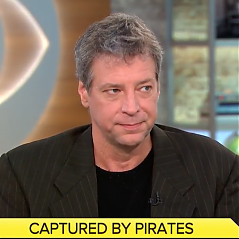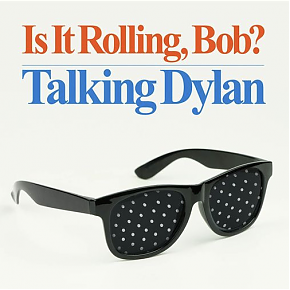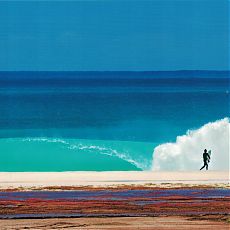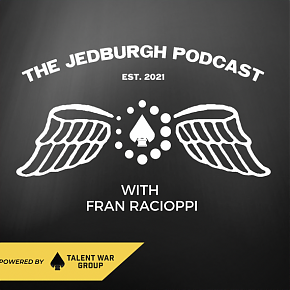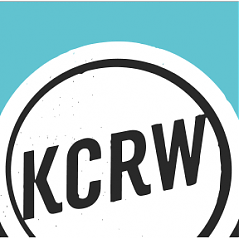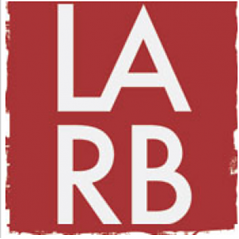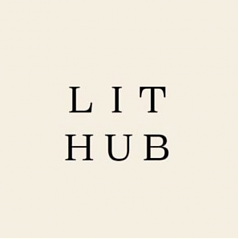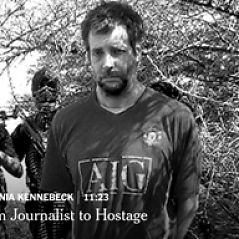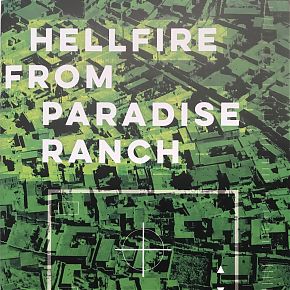This Will Kill That
What if technology makes reading old-fashioned?

SF Weekly
March 1998
“Pasquedieu! What are your books?”
“Here is one,” replied the archdeacon, opening the window of his cell; he pointed to the Cathedral of Notre-Dame, whose two black towers, stone walls, and huge roof were silhouetted against the starry vault of heaven, like a monstrous two-headed sphinx in the middle of the City.
For some time the archdeacon contemplated in silence this gigantic structure; then, with a sigh, pointing with his right hand to the printed book opened on the table, and with his left hand to Notre Dame, and casting a mournful glance from book to church, “Alas!” he said, “this will kill that.”
— The Hunchback of Notre Dame
§
Referring to the “architecture” of a novel is a throwback to the days before reading was common, when cultures communicated in stone. From pyramids and temples through churches and forts — writes Victor Hugo in The Hunchback of Notre Dame — humans have always thought in terms of structure. But the printing press spread literacy: it changed the way Europeans expressed themselves by taking language to the people. “The invention of printing was the greatest event in history,” Hugo writes. “It was the parent revolution; it was the fundamental change in mankind’s mode of expression, it was human thought doffing one garment to clothe itself in another.” Hugo essentially calls Gutenberg a real-life Prometheus, whose contraption wrestled thinking from churches and kings.
Gutenberg has been revived lately as the symbol of a vanishing epoch. Sven Birkerts’ The Gutenberg Elegies is a paean to the dying art of reading; many people are dimly aware that books might be replaced in the foreseeable future by electronic paper and ink. But invoking Gutenberg may be giving computer technology more credit than it deserves. Keep in mind that Europeans like to snicker at the way Americans treat the Internet as an Earth-shaking revolution. “It’s just a tool,” they point out, and in a blasé manner carry on as if the Internet had always existed. Gutenberg is probably too strong a symbol for what may after all be just another TV-style shift of medium, unless computers really do come to mark “a fundamental change in human expression” as widespread and trenchant as what Gutenberg’s altered wine press started in 1453.
There are clear examples of a trend away from paper, from digitized Shakespeare catalogs to electronic ink. But why stop there? Why not imagine a day when we don’t use written words at all? Seymour Papert, the MIT professor famous for developing the LOGO computer language, has been suggesting for years that virtual reality might make reading and writing obsolete in grade school. Papert notes that the technology to teach children without printed language already exists, and goes on to imagine a virtual-reality encyclopedia that would let even illiterate children navigate through the computer-simulated world of, say, a giraffe, and learn how a giraffe looks, sounds, runs, mates, and grazes. Or the child could look up “Peloponnesian War” and explore a simulated version of the real thing.
“Already, children are made increasingly restive by the contrast between the slowness of School and the more exciting pace they experience in videogames and television,” Papert wrote in his 1993 book The Knowledge Machine. “But the restiveness is only a pale precursor to what will come when they can freely enter virtual realities of animals in Africa or wars in ancient Greece.”
At the Academy of Lagado, in Gulliver’s Travels, Gulliver visits the school of languages, where professors are working on “a scheme for entirely abolishing all words whatsoever.” The scheme is to get everyone in the country to carry around all the things they might need to talk about, and then pull them out for reference. “I have often beheld two of those sages almost sinking under the weight of their packs, like pedlars,” reports Gulliver, “who when they met in the streets would lay down their loads, open their sacks, and hold conversation for an hour together, then put up their implements, help each other to resume their burdens, and take their leave.”
Swift was joking, and the day could come — but probably won’t — when we load all our things onto a portable hard drive and walk around flashing icons at each other. A Knowledge Machine may never replace speech. But for the first time in history it’s at least plausible for a literate society to move backwards, in a sense, and pass on its traditions without writing. Would that be so bad? Our lives would be a lot easier if we didn’t have to strain first our own heads and then our childrens’ with a rigorous and old-fashioned regimen of phonics, spelling, vocabulary tests, book reports, and essays. Shorter attention spans have only made English harder to master; and the debates raging in school districts right now over how to teach reading and what to put on curriculum lists (“Is Plato too white?”) could be comfortably trashed in favor of a wide-open system of learning that students would take to like they take to Donkey Kong. Papert doesn’t say we should abandon language altogether, but there really is no reason to put ourselves out if the practical ends of reading and writing can be served by a new technology. This will kill that: it’s the way of the world. Gutenberg, after all, pulled Europe out of the Dark Ages.
But an Economist article raises an objection in a rant against television evangelists that applies here as well: “The magic potency of the oral word and the encapsulated message conveyed by the visual icon are dethroning the written word — and the mental habits of rational discourse sustained by it.”
The mental habits of rational discourse: How can a child who never learns a language learn to organize, or even name, ideas? If the printing press brought to the public not just literacy but also the habit of thinking, how will a child who never learns to read or write be able to think and argue?
“You’ve slipped slightly from reading to talking,” Papert said, when I asked him the same question on the phone. “I know people who don’t read and write, in other cultures; for example out in Africa, there are a lot of people there in societies where they don’t put much store by reading and writing, but that doesn’t mean they don’t know how to organize their thoughts. They organize their thoughts very well indeed. Maybe not the same way as we do, but they certainly organize them and they’re capable of carrying out a very sharp discussion.”
But the world that preliterate people live in can still be called “real.” When you slip under the influence of a book — or a virtual-reality impression of mating giraffes — you slip under the influence of another person, into an artificial world concocted by an author. This is the most important lesson taught by reading and writing, that your written history of the Peloponnesian War is only somebody’s version of that war. Teaching children to sit through virtual reality with the same critical distance would be twice as important, and twice as hard.
“Critical thinking without language…” Papert said on the phone. “I think it’s an extremely interesting challenge. I don’t know whether I’m … I think that getting away from language altogether … I can’t even bring my mind to, I can’t even think about it, it’s too far out.”
“You can’t think about it without —”
“I can’t think about it without language, but if I had these new media I could. …Doing without reading and writing is easy to think about. All the purposes that are served by reading and writing, as we know about, could be served — could be achieved otherwise. That’s not a big jump, in terms of the ability to imagine it. It’s a big jump in terms of its implications. That further jump of the imagination that might go even beyond language is not really necessary to make the basic point that things will change much more deeply than they have, for a long long time.”
So Papert doesn’t mean to say we should stop teaching kids to read. But he can imagine that some essence of critical thinking can be expressed without words. If that’s true — and only if it’s true — we may really be on the threshold of a revolution as dramatic as Gutenberg’s, a sea-change in human expression. “Not many people are being radical about it,” says Papert. “[As in,] Let’s see what it’s like to develop a philosophical idea without using text … Someday somebody will. But people aren’t now, so far as I know.”
Michael Scott Moore
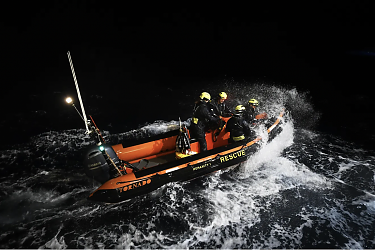
Rafts of the Medusa
Why every day on the Mediterranean is a new scandal for Europe. For both Foreign Policy and Die Zeit.
California’s Attempt at Land Reparations
How land seized from a Black family 100 years ago may be returned. The Bruce’s Beach story from a hometown angle, for The New Yorker
Day of the Oprichnik, 16 Years Later
The novelist Sorokin, the president Putin, his man Dugin, and the war in Ukraine. For n + 1.
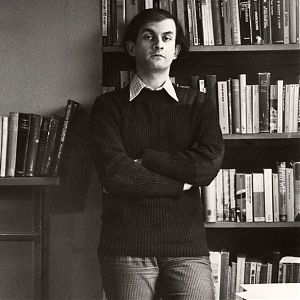
The Rushdie Narrative
Knife and the crumbling ground beneath free speech
There Must Be Some Way Out of Here
An essay on Bob Dylan, “All Along the Watchtower,” and Somali pirate captivity.
That Mystic Shit
The life of Lou Reed in two biographies

Cambodian Seafarers Talk About Pirates
Mike visits Cambodia for The New Yorker to talk about a harrowing shared experience in Somalia
The Muslim Burial
Cambodian hostages remember digging a grave for one of their own. A sequel chapter to The Desert and the Sea
The Real Pirates of the Caribbean
Adventure journalism in Southern California. A travel essay for The Paris Review.

Antifa Dust
An essay on anti-fascism in Europe and the U.S., for the Los Angeles Review of Books
Was Hitler a Man of the Left?
A book that helped Republicans in America lose their damn minds.
Ghosts of Dresden
The Allied firebombing of Dresden in 1945 destroyed the baroque center of what Pfc. Kurt Vonnegut called, in a letter home from Germany, “possibly the world’s most beautiful city.”
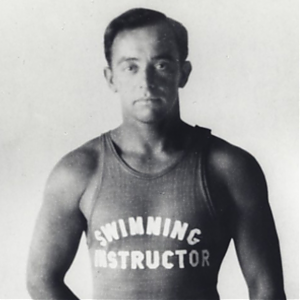
George Freeth, Biographed
The first academic treatment of America’s surf pioneer. Also, was Freeth gay?
It’s Called Soccer
Americans live on what amounts to an enormous island, defended on two shores by the sea, and we’ve evolved a few marsupial traditions that nobody else understands.
Tilting at Turbines (in the Severn River)
The morning was clear and cold, with frost on the church steeple and the cemetery grass. I had a quick English breakfast at a white-cloth table, in my wetsuit, and drove to Newnham, a village on the Severn River in Gloucestershire, parking near the White Hart Inn.

The Curse of El Rojo
I’d packed the car lightly — a bag of clothes, a bag of cassette tapes, a backpack of books, a few essential tools.














